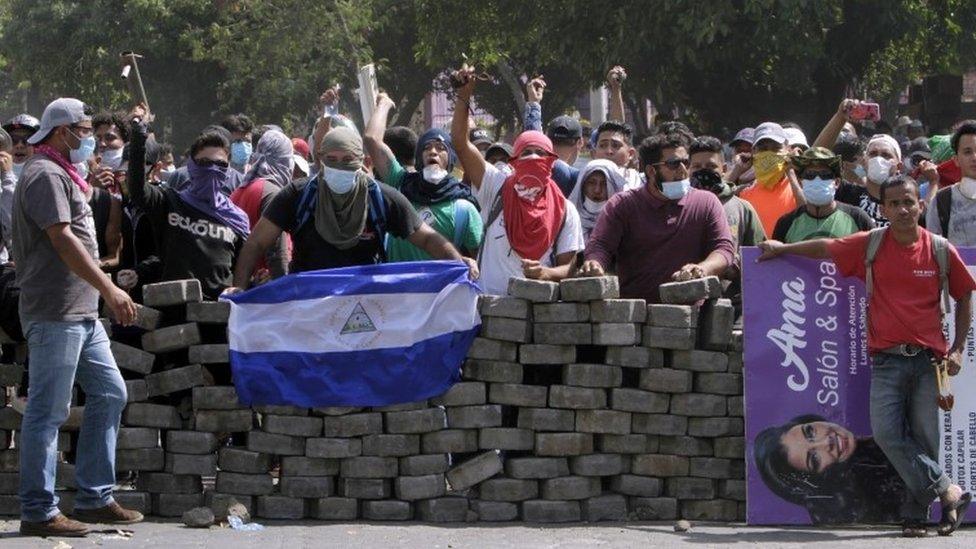Nicaragua unrest: Bishop's anger as people die in clashes
- Published
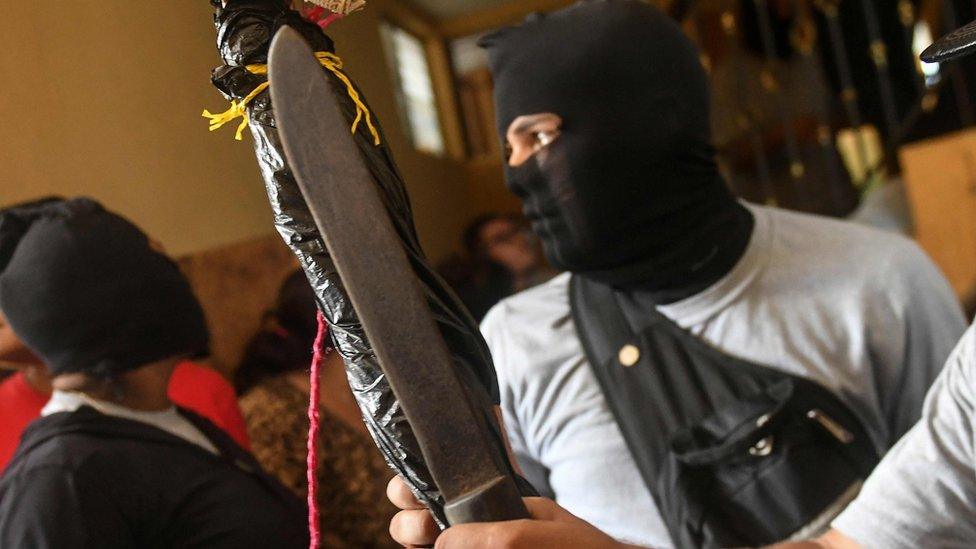
Protests have gripped Nicaragua since April
A Nicaraguan bishop has accused the government of using extreme violence after 14 people were reportedly killed over the weekend.
Rolando Alvarez, bishop of Matagalpa, said an operation to clear protesters' road blocks had been carried out "at the price of blood and death".
Protesters and pro-government forces are reported to be among those who lost their lives on Sunday.
The clashes came as protests continue to grip the central American nation.
The demonstrations, which were triggered by government cuts to pensions and social security announced in April, quickly descended into violence, with more than 200 people reported to have lost their lives so far.
Protesters - who are demanding President Daniel Ortega resign - had set up road blocks in western towns, not far from the opposition stronghold of Masaya.
But over the weekend, pro-government forces entered the area and broke down the barriers, with videos shared on social media appearing to show groups of heavily armed, hooded men.
One group - including volunteer medics - became trapped in the San Sebastián basilica in Diriamba overnight. When bishops, including Cardinal Leopoldo Brenes and Apostolic Nuncio Stanislaw Waldemar Sommertag, came to try to free them on Monday, they also found themselves surrounded by pro-government groups, calling them "murderers" and "liars" and blocking their route.
Vilma Nunez, president of the Nicaraguan Centre for Human Rights (CENIDH), told news agency AFP Sunday's violence had been "a horror".
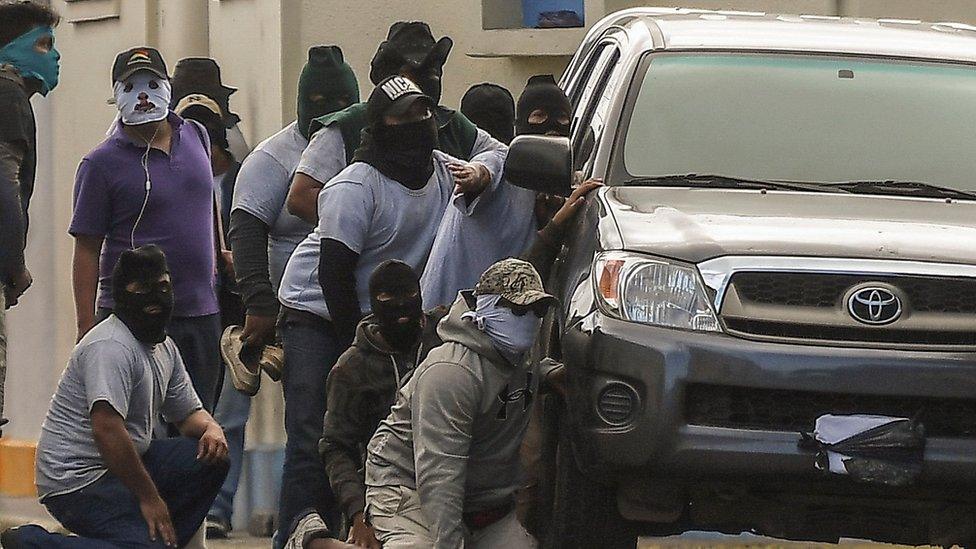
Paramilitaries surrounded the San Sebastián Basilica, in Diriamba, on Monday
"We have a minimum of 14 dead, but it could be more. That includes at least one anti-riot officer, one paramilitary member and two police officers," she said.
"This looked like an occupation army. They wiped out all the barricades. There are more dead whose identities we have not been able to confirm.
"There are a lot of arrests and injuries. A disaster."
Bishop Alvarez accused to government of having been "blinded" by "arrogance and pride".
"They did not want this path [of democratisation], so they have dedicated themselves, as they say, to clean up the highways at the price of blood and death, and then going house-to-house to arrest people, to try them, to offend them with ridiculous accusations, accusations which are not only out of order but against all common sense and logic," pro-opposition website Confidencial reported him as saying.
The church has been acting as a mediator between the two sides. It had suggested moving the elections two years earlier, to 2019, in order to try to bring the violence to an end but President Ortega - who accuses protesters of wanting to set up a coup - ruled it out on Saturday.
- Published24 June 2018
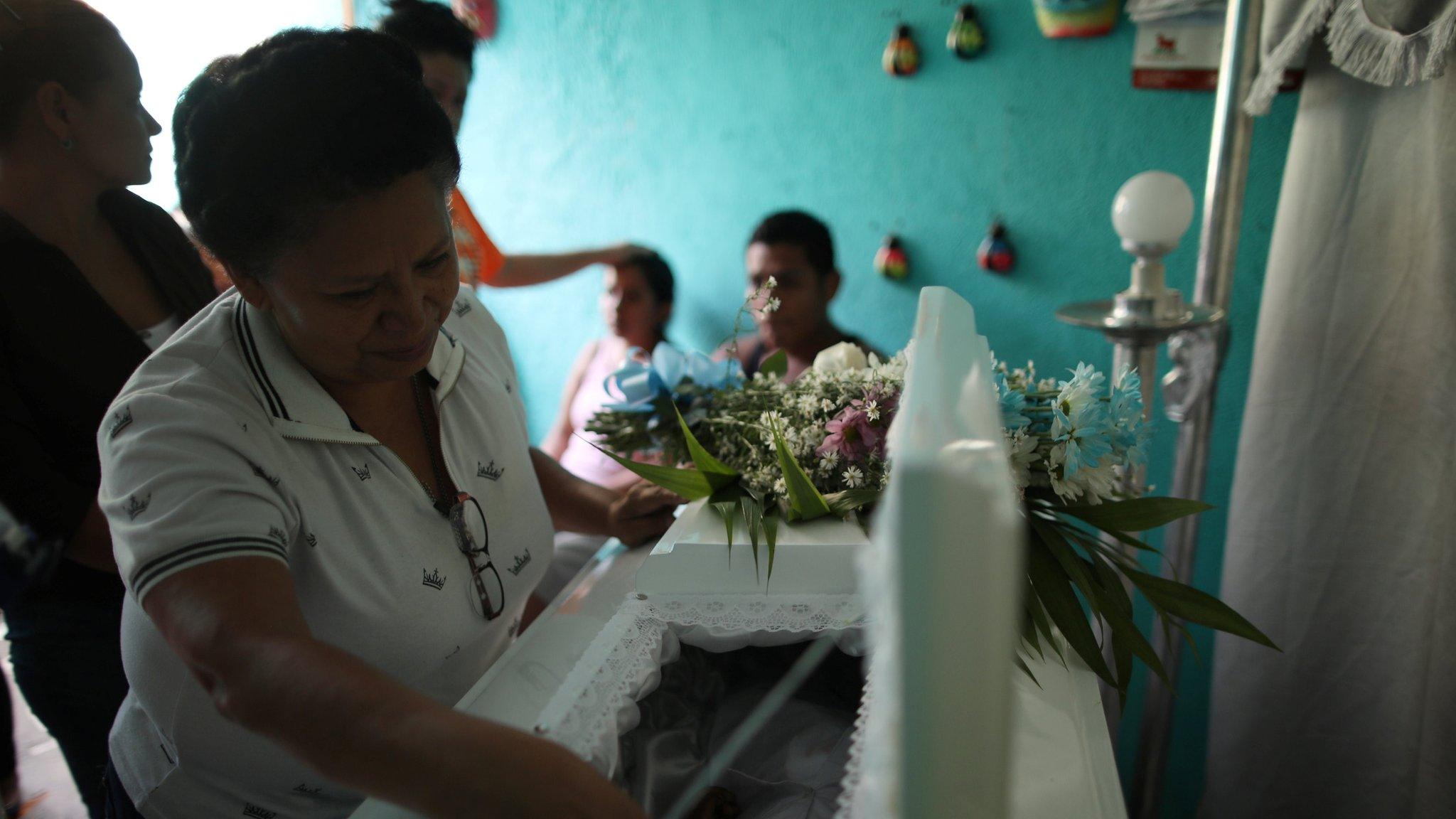
- Published29 May 2018
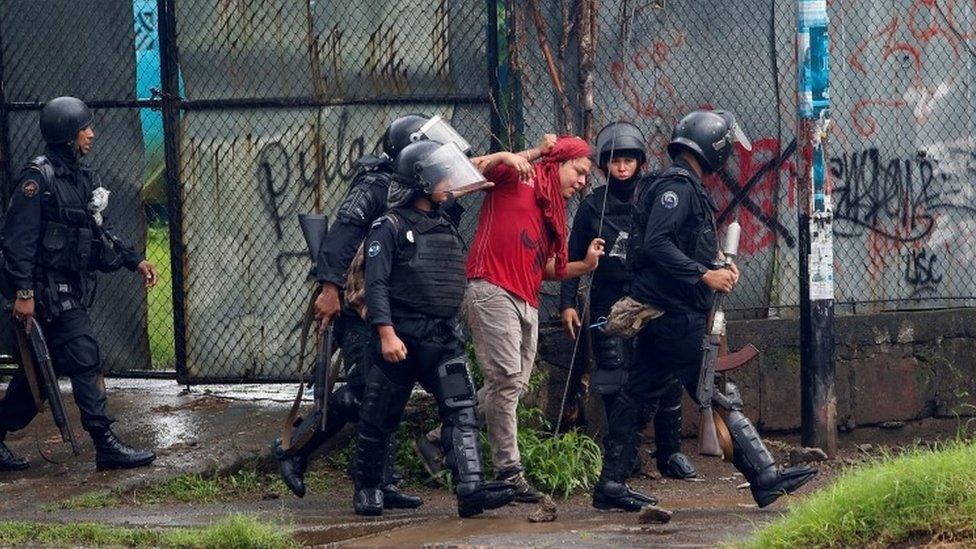
- Published7 May 2018
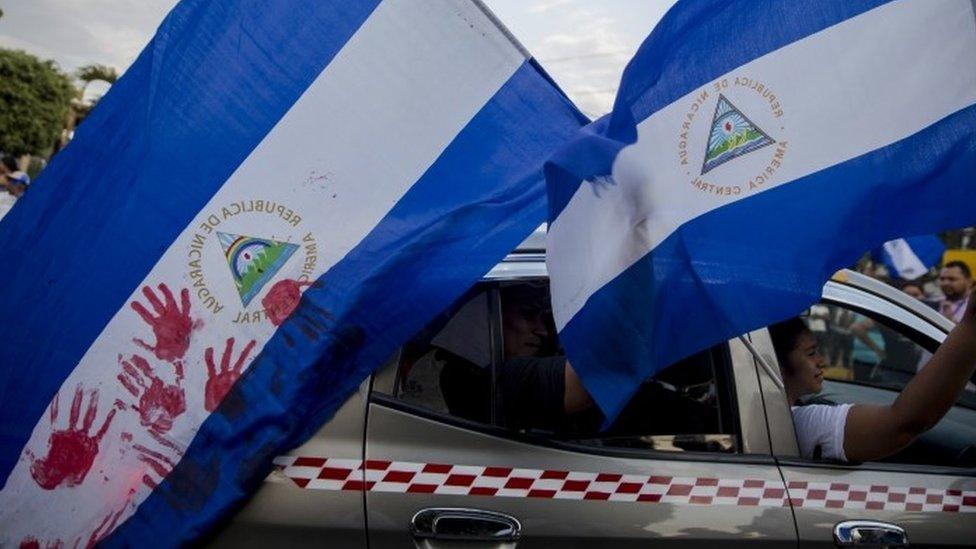
- Published23 April 2018
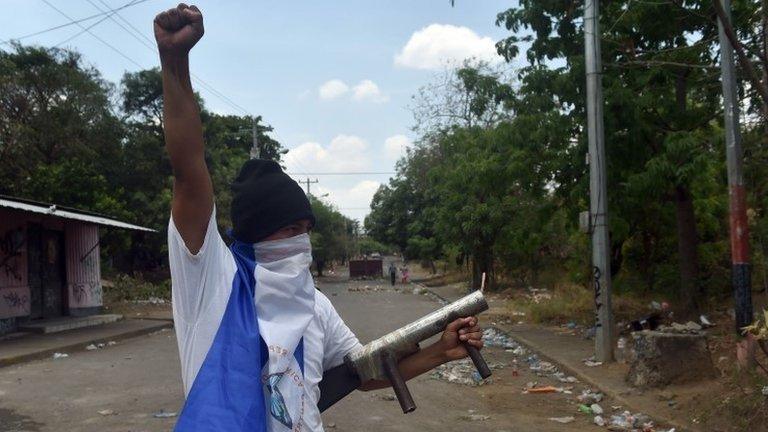
- Published22 April 2018
